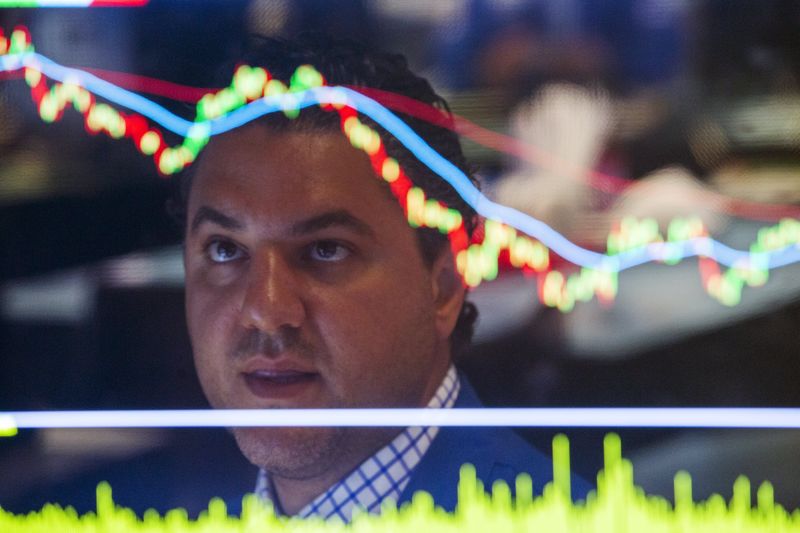By Geoffrey Smith
Investing.com -- Treasury bonds stabilize after their biggest one-day sell-off in months. Jerome Powell and two other top Fed officials may speak to that later. China Evergrande failed to pay all its bondholders on time, putting it technically in default. China's central bank again intervened to keep markets calm, before an old statement lashing out at cryptocurrencies ruffled feathers again. Chinese industry is also suffering increasingly from power shortages as local administrations scramble to meet their pollution targets. And Nike (NYSE:NKE)'s earnings disappoint due to prolonged factory closures in Vietnam because of Covid-19. Here's what you need to know in financial markets on Friday, 24th September.
1. Evergrande doubts revive; PBoC intervenes again
China Evergrande fell into technical default after failing to pay all the holders of its dollar bonds by the prescribed deadline on Thursday. The company has a 30-day grace period in which to satisfy the claims before it is officially declared in default but, given that the company has already stopped paying many of its contractors and some of its staff, that is just semantics.
China Evergrande (HK:3333) stock fell 11% in Hong Kong, causing broader Chinese and European equity markets to slide again. The People’s Bank of China again injected liquidity to keep the domestic money market orderly, although its intervention was a little smaller that on Wednesday and Thursday. It has nonetheless injected over $70 billion in a holiday-shortened week.
The PBoC also made for some concern in cryptocurrency markets as they picked up on a statement restating the bank’s official position that all crypto-related transactions are illegal in China. The crypto universe reacted by sending Bitcoin down 3.2% and Ethereum down 7.2%. The statement, while posted on the bank's website only on Friday, appeared to be dated Sept. 15.
2. Treasuries stabilize after Thursday sell-off; Powell, Clarida due to speak
U.S. Treasury bonds stabilized after lurching to their highest in nearly three months on Thursday. The 10-Year yield, which reached a high of 1.45% on Thursday, eased to 1.41% by 6:15 AM ET (1015 GMT).
The move appeared to be a delayed reaction to the Federal Reserve’s policy statement and press conference on Wednesday, where attention had initially focused on the Fed’s decision not to reduce bond purchases immediately. It has now shifted to comments from Chair Jerome Powell that asset purchases may be phased out entirely by the middle of next year, a relatively short timeframe.
The news comes against a backdrop of political theater over the debt ceiling and two Democrat-led spending bills that would require a sustained barrage of Treasury issuance. Powell is due to speak at an event starting at 10 AM ET (1400 GMT), alongside his deputy chair Richard Clarida and Fed governor Michelle Bowman.
3. Stocks set to open lower; Nike disappointment in focus
U.S. stock markets are set to open the market lower on a fresh bout of nerves about the China debt crisis, and alarm at the sharp rise in bond yields on Thursday.
By 6:15 AM ET, Dow Jones futures were down 79 points, or 0.2%, while S&P 500 futures were down 0.4% and Nasdaq 100 futures were down 0.5%. Sentiment will not be helped by the latest Bank of America (NYSE:BAC) fund manager survey, which showed the first net outflows from global equities this year.
Stocks likely to be in focus later include Nike, which warned of possible supply shortages lasting into the holiday season in an all-round disappointing quarterly update after the bell on Thursday. Covid-19-related factory closures in Vietnam, where it makes most of its footwear, were to blame. The news also dragged down Adidas (OTC:ADDYY) and Puma (OTC:PMMAF) in early European trade.
By contrast, Costco (NASDAQ:COST) and Trip.com (NASDAQ:TCOM) both beat expectations handily with their results.
4. U.K. energy, food crisis looms
The U.K. economy is looking a bout of stagflation in the face, as a shortage of truck drivers threatens to hobble deliveries of both food and gasoline for the foreseeable future.
BP (NYSE:BP) and Exxon Mobil (NYSE:XOM) both said on Thursday they would have to ration supplies of fuel to gas stations due to a driver shortage. Supermarket chains have had similar problems for weeks already. The latest developments come only days before the U.K. government is due to end its pandemic-era furlough scheme, something that is likely to add to a rise in unemployment.
The government is also cutting the temporary 20 pound ($28) weekly bump to its ‘universal credit’ benefit program, which will hit the jobless and low paid just as their energy bills are set to soar. The Bank of England meanwhile said on Thursday it expected a rate hike to be appropriate before the year end, faced with inflation rising above 4%.
5. China's pollution clampdown hits industry; natgas prices resume rally
The energy crisis isn’t confined to the U.K., however. In China, a growing number of factories are having their power supplies cut as part of Beijing’s clampdown on pollution. Soaring coal prices, meanwhile, are making it uneconomic for power stations to continue supplying energy-intensive industry.
Power curbs have now extended to 10 of China’s provinces, Bloomberg cited the 21st Century Business Herald as saying. The two-pronged effect threatens to slow the Chinese economy further in the final quarter of the year. In addition to the well documented problems of the steel and aluminum industry, the curbs are also affecting the chemicals, dyeing and textiles industry.
Natural gas prices resumed their rally overnight, after dipping in midweek. By 6:30 AM ET, front-month prices at the Henry Hub were up 1.9% at $5.07 per mm Btu.
